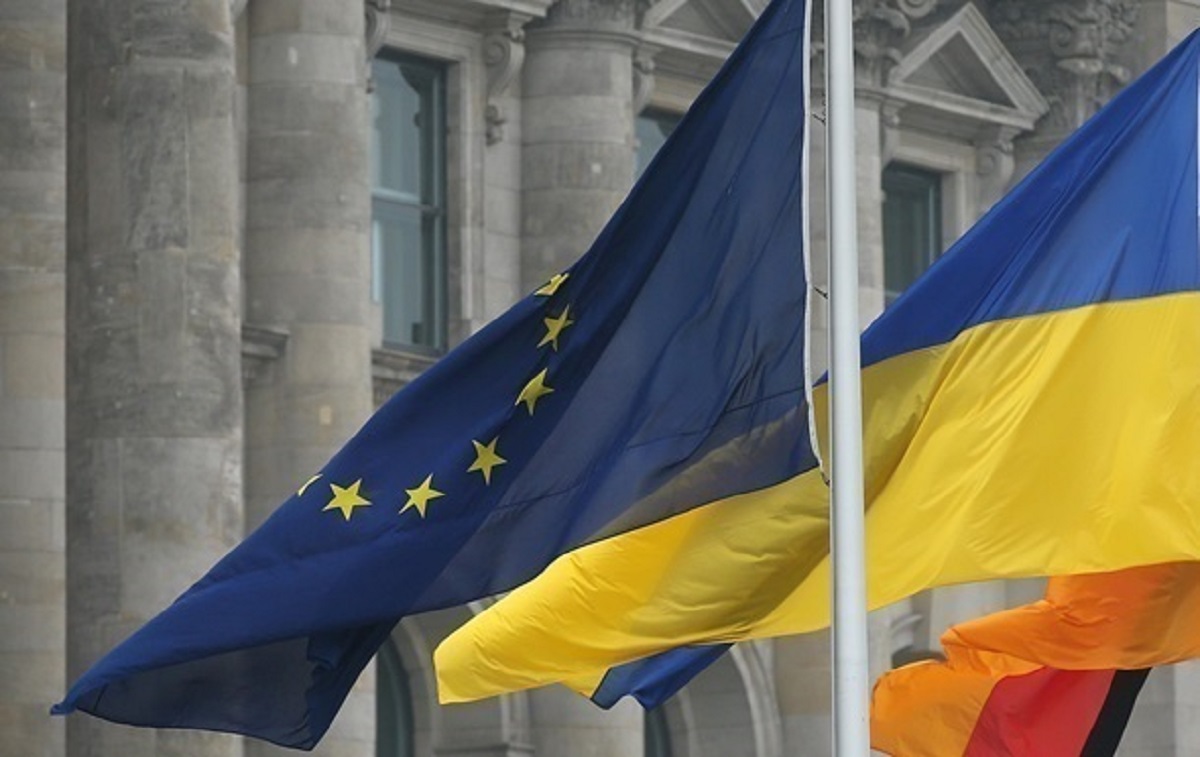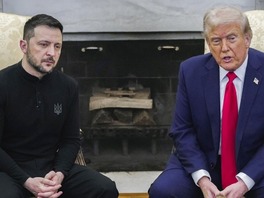The Ukrainian government anticipates the start of official EU accession talks at the intergovernmental conference scheduled for June 25. While technical consultations among EU capitals on the negotiation format are proceeding smoothly, uncertainty surrounds Budapest's stance, which could potentially block the process. EU officials, including European Parliament President Roberta Metsola and EU Ambassador to Ukraine Katarina Mathernova, expect negotiations to commence in the coming months. For an analysis of Hungary's likelihood of not blocking the start of the negotiation process, read Apostropje.
Hungarian factor
Brussels officials advocate for starting official EU accession talks with Ukraine in the coming weeks, without waiting for July 1, when Hungary assumes the six-month presidency of the EU Council, posing potential risks for Ukraine.
According to U.S. publication Politico, based on comments from five anonymous diplomats, active efforts are underway to persuade the Hungarian government to agree to the start of these negotiations.
The proposal is to begin official negotiations on June 25. Diplomats believe this move will morally support Ukraine in its resistance to Russian aggression.
It is also reported that Ukraine and the EU are holding talks with Budapest to resolve issues related to Hungarian minorities in Ukraine.
‘The start of the negotiation process on the timeline planned by Brussels is possible, but Ukraine's accession to the EU should not be expected earlier than in 5-7 years. On one hand, EU officials understand that the European integration project won't be complete without Ukraine, but on the other hand, there are factors like the war, economic competition with some EU countries, and political issues. Clearly, without offering some 'incentives' to Hungary, the process won't move forward,’ said political expert Yevhen Mahda, head of the Center for Public Relations, in a comment to Apostrophe.
As a result of the April talks between the head of the Office of the President of Ukraine, Andriy Yermak, and Hungarian Foreign Minister Péter Szijjártó, the ‘parties noted a positive dynamic in the dialogue.’ The diplomat reported that Kyiv responded to a list of 11 points proposed by Budapest and is now awaiting a response from Hungary.
The demands raised by the Hungarian side during the meeting with Andriy Yermak mostly concerned the rights of ethnic Hungarians who are Ukrainian citizens. The Office of the President reported that it agreed to 5 of the 11 points, but provided few details.
One EU diplomat speculated that Hungary aims to conclude the negotiations before the start of its six-month presidency in the EU Council in July.
‘There was a sense that it shouldn't be done before the European Parliament elections (June 9), as it could become an election issue,’ conveyed one of the surveyed diplomats, reflecting the sentiments in Brussels.
‘At the moment, we are looking for this time in June. If you're Hungarian, you'd want this negotiations on Ukraine's EU accession to be concluded by the time of your presidency,’ added a diplomatic interlocutor speaking to Politico.
Cautious optimism
After receiving political support from European Union leaders, the next stage in the accession process is the official negotiation through an intergovernmental conference with Ukraine, marking the beginning of membership talks.
To initiate this process, EU member states must approve the so-called negotiating framework. All 27 EU capitals have been discussing this document since it was sent by the European Commission in March. According to two diplomats, technical negotiations are progressing successfully, and it is expected that in the coming weeks, a new draft of the document will be presented to EU ambassadors to address the most challenging issues.
Ukraine, along with its supporters in the EU, insists on holding an intergovernmental conference between Brussels and Kyiv before Hungary assumes the presidency due to the EU Council rotation on July 1.
A month ago, EU Ambassador to Ukraine Katarina Maternova expressed confidence that Ukraine is on the right track and ready to begin negotiations for EU accession, expressing hope for their start as early as June. European Parliament President Roberta Metsola, during her recent visit to Kyiv, also expressed hope that negotiations would commence by the end of the first half of 2024.
Maternova's statement became one of the many indicators of Kiev and Brussels' intentions to commence official negotiations by the end of the first half of 2024. For the first time, an official EU representative publicly confirmed the absence of technical and legal obstacles for this. It's important to understand that European officials themselves acknowledge that any delay in starting the negotiation process would occur solely for political reasons.
In February-March, it was understood that negotiations could begin, but many were surprised by European Commission President Ursula von der Leyen's statement that Ukraine should not expect a swift start to negotiations due to the alleged unreadiness of the negotiation framework, even though the framework was already prepared at that time, as von der Leyen's colleagues were forced to acknowledge. Literally within a few days, the President of the European Commission had to disavow her own statement. In early March, the European Commission officially approved the draft Ukrainian negotiation framework.
Meanwhile, according to diplomatic sources, Hungary is aiming for a successful presidency in the EU Council. Belgium, the current president, is signaling to Hungary that supporting Ukraine aligns with their political interests, considering Hungary's potential use of various methods to block Ukraine's accession to the EU.
Belgian officials have already scheduled an intergovernmental conference for June 25, a few days before Budapest assumes the EU Council presidency on July 1. However, as noted by one diplomat speaking to Politico, it's impossible to predict Hungary's actions until we hear the official position of Hungarian Prime Minister Viktor Orbán's government.
For now, the controversial Hungarian Prime Minister maintains an ambiguous silence.
‘Lately, Orbán hasn't made harsh statements against Ukraine precisely because there haven't been reasons, but now, as Brussels prepares for the start of the negotiation process, a reason has appeared. Currently, Belgium leads the EU Council, and as of July 1, Budapest takes over. But even now, consensus with the Hungarians is needed to start negotiations. In the coming weeks, Orbán's position will become clear. So far, he only talks about 'peace' and 'negotiations.' Let's see what other conditions he will voice,’ says Vitaliy Bala, Head of the Situation Modeling Agency, to Apostrophe.
Victor Orbán's factor influences the negotiations regarding Ukraine's accession to the EU because unanimity among member states is needed to start. The Hungarian Prime Minister is known for his persistent attempts to block Kyiv's movement towards the EU and NATO. Recently, Budapest declared a lack of progress in dialogue with Ukraine, which clearly contradicted the aforementioned statements from the Office of the President.






